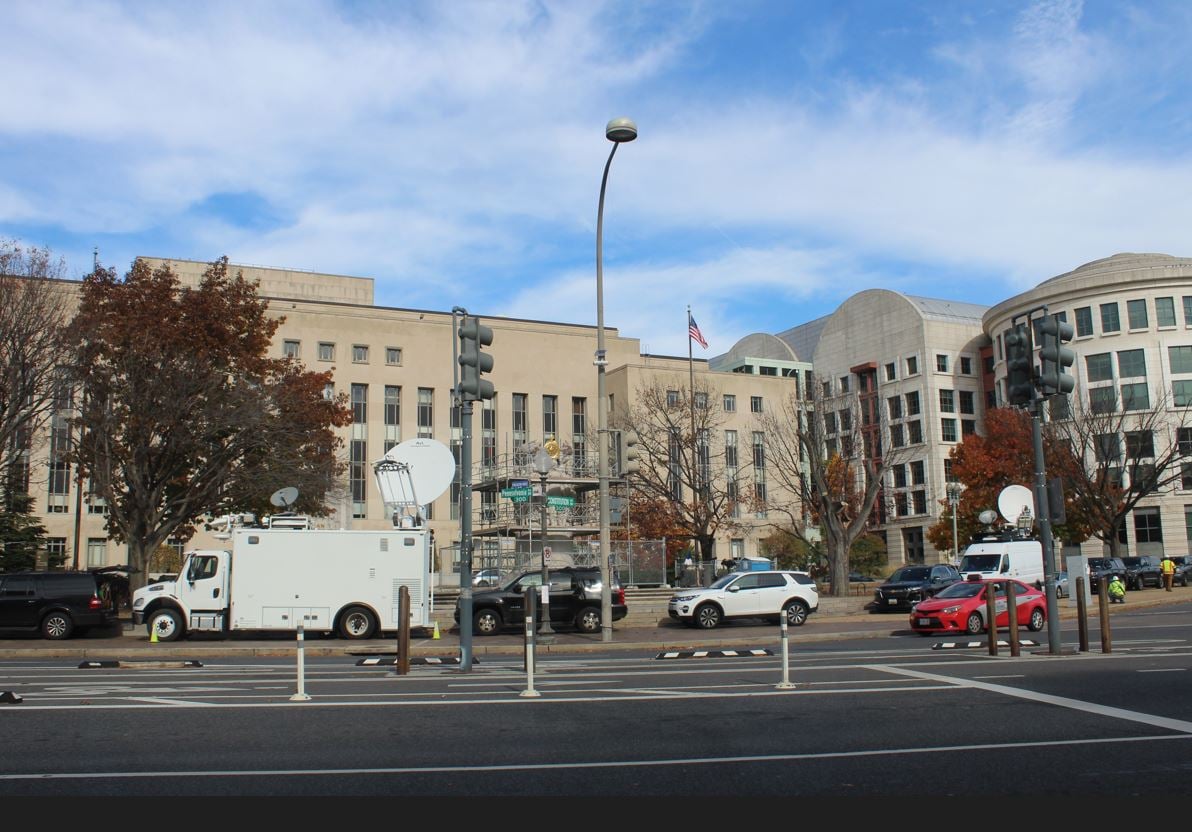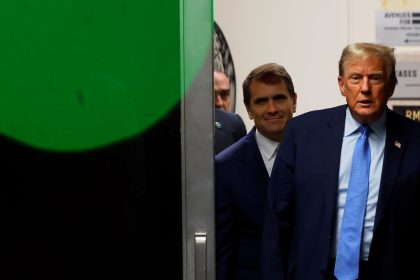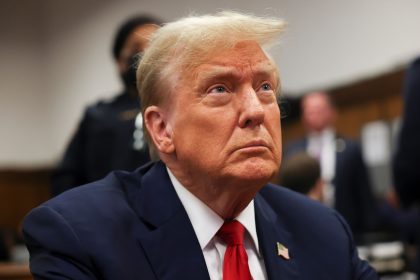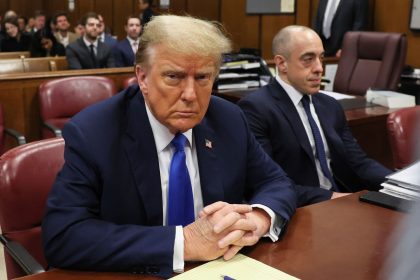Appeals Court Considers Lifting Gag Order Against Trump

WASHINGTON — Federal appeals judges in Washington, D.C., seemed skeptical Monday about arguments by attorneys for Donald Trump that a gag order should be withdrawn to allow him to criticize court personnel in his election interference case.
Trump has used phrases like “corrupt,” “deranged” and “red headed weirdo” to describe judges, prosecutors or witnesses participating in the four criminal cases pending against him.
He confronts the most serious charges in his trial for allegedly using criminal tactics to overturn the 2020 presidential election.
A judge last month ordered him to stop the denunciations to avoid intimidating witnesses in a way that might interfere with the trial.
The order is known as a gag order. Violations could incur heavy fines and possible criminal sanctions.
Trump lashed out at witnesses and court personnel in social media posts and television interviews.
During the hearing Monday before the U.S. Circuit Court of Appeals, Trump attorney D. John Sauer argued that the order violated Trump’s First Amendment right to free speech.
He said the order was a greater danger to free speech than most gag orders because Trump needed to be unimpeded in his statements as he runs for president. He called the gag order a “terrible precedent” that set “restrictions against core political speech.”
Trump echoed his attorney’s assertions in a public statement Friday.
“The gag order appoints an unelected federal judge to censor what the leading candidate for president of the United States may say to all Americans,” Trump’s statement said. “No court has ever upheld a gag order on core political speech at the height of a campaign.”
Comments from the three-judge panel implied they would be unwilling to completely get rid of the gag order but they might be willing to modify it to allow criticism of some persons, such as Jack Smith, the Justice Department’s special counsel overseeing Trump’s prosecution.
Judge Patricia Millett said, “Labeling it ‘core political speech’ begs the question of whether it is, in fact, political speech, or whether it is political speech aimed at derailing or corrupting the criminal justice system.”
Trump’s heated statements have “the knock-on effect with the loyalists’ zeal, and that’s then, you know, what causes direct efforts at threatening and harassing individuals,” Millett said.
The data reporting website Statista reported that by January of this year, Trump had 87.73 million followers on his X (formerly known as Twitter) accounts.
Prosecutors say 16 people connected to legal cases against Trump have been threatened after the former president’s criticisms of them. They included district attorneys in New York and Georgia and a New York judge presiding over Trump’s ongoing civil fraud trial.
Millett and Judge Cornelia Pillard indicated they are considering narrowing the gag order to allow Trump’s comments against public figures and institutions, such as the Justice Department.
Pillard said, “It can’t be that he can’t mention Mr. [Jack] Smith,” because most Americans already know he leads the prosecution against Trump.
The gag order bans Trump from “making any public statements … that target the special counsel … or his staff.”
Trump’s attorneys say the word “target” in the order is too vague to be effective in determining what he can and cannot say.
Justice Department assistant special counsel Cecil VanDevender said the gag order was “crafted to address those risks” of Trump’s statements intimidating potential witnesses or court personnel.
“The district court correctly found that the defendant’s well-established practice of using his public platform to target his adversaries, including trial participants in this case, poses a significant and immediate risk to the fairness and integrity of these proceedings,” VanDevender said.
The court did not issue a ruling on the gag order. The next court appearance in the case is scheduled for Nov. 30, when the judges are likely to announce their decision.
Trump’s attorneys say they will appeal to the Supreme Court if they lose.
The four-count indictment against Trump in Washington accuses him of inciting rioters at the U.S. Capitol on Jan. 6, 2021, in hopes of preventing Congress from certifying the election win for Joe Biden. His trial is set for March 4.
In Florida, he is charged with illegally taking and concealing classified documents at his estate in Palm Beach. In New York, he faces allegations of fraudulently inflating the value of his properties and paying hush money to a porn star.
In Georgia, Trump faces charges of trying to subvert the 2020 presidential election with false accusations of voter fraud.
You can reach us at [email protected] and follow us on Facebook and Twitter
























